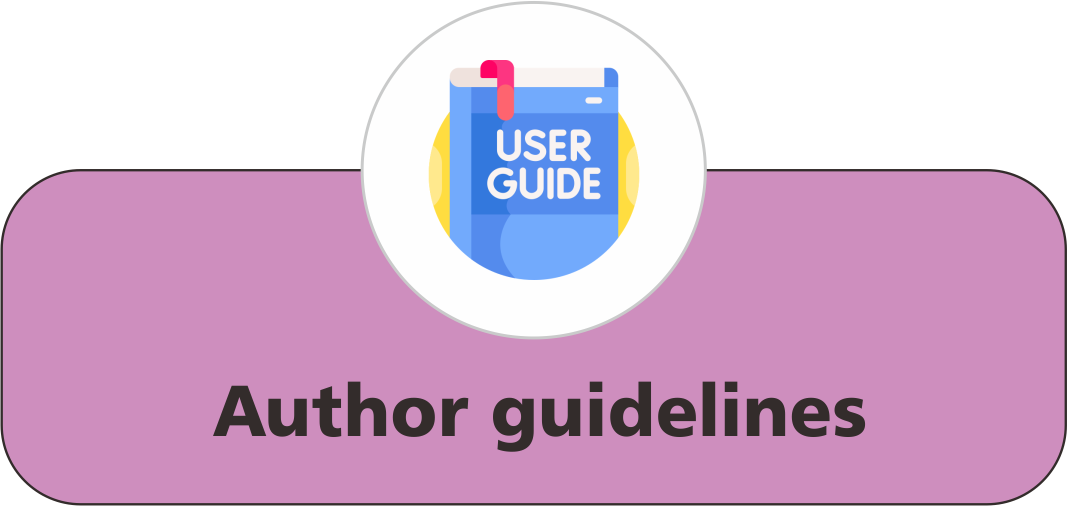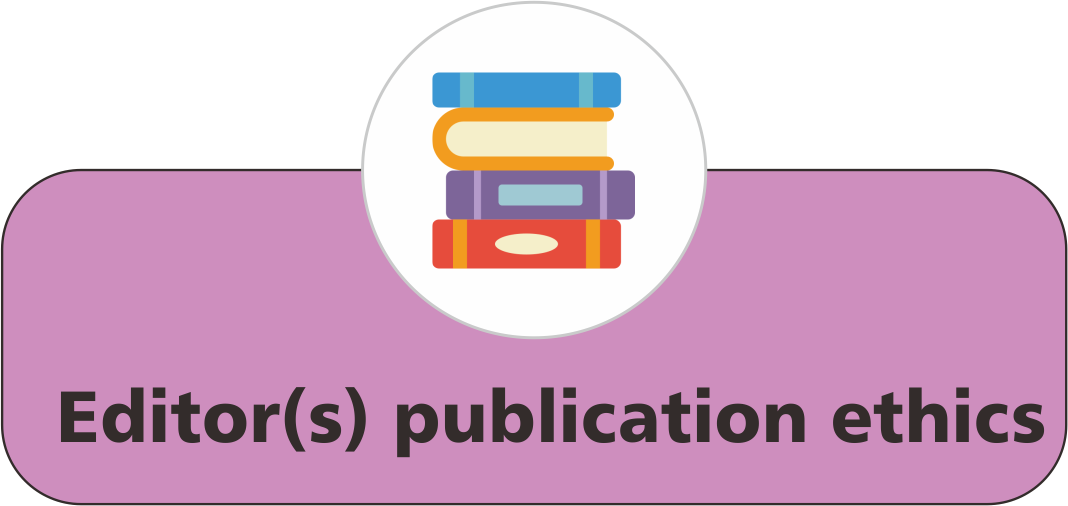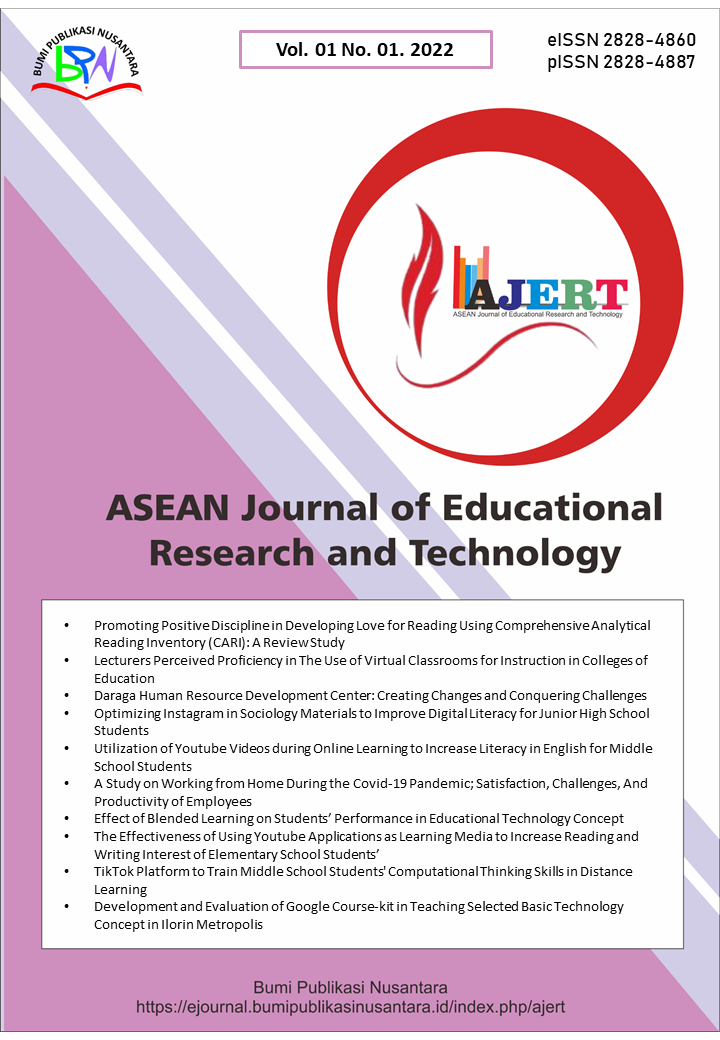Students’ Preferred Instructional Practices
 ), Melody A. Zaragoza(2), Sherry V. Mecida(3),
), Melody A. Zaragoza(2), Sherry V. Mecida(3),
(1) Notre Dame of Tacurong College
(2) Notre Dame of Tacurong College
(3) Notre Dame of Tacurong College
 Corresponding Author
Corresponding Author
Abstract
Keywords
References
Asriyanti, A., Septiani, T. D., Siagian, M. S. P., and Triawan, F. (2021). Portable coffin lowering device for covid-19 corpse handling: Education, design process, and strength analysis. Indonesian Journal of Multidiciplinary Research, 1(1), 41-54.
Azzahra, S., Maryanti, R., and Wulandary, V. (2022). Problems faced by elementary school students in the online learning process during the Covid-19 pandemic. Indonesian Journal of Multidiciplinary Research, 2(2), 245-256.
Choi, B., Jegatheeswaran, L., Minocha, A., Alhilani, M., Nakhoul, M., and Mutengesa, E. (2020). The impact of the COVID-19 pandemic on final year medical students in the United Kingdom: a national survey. BMC Medical Education, 20(1), 1-11.
Conklin, S., and Garrett Dikkers, A. (2021). Instructor social presence and connectedness in a quick shift from face-to-face to online instruction. Online Learning, 25(1), 135-150.
Cookson, A., Kim, D., and Hartsell, T. (2020). Enhancing student achievement, engagement, and satisfaction using animated instructional videos. International Journal of Information and Communication Technology Education, 16(3), 113-125.
Doll, K., Ragan, M., and Calnin (2021). Adapting and enduring: Lessons learned from international school educators during COVID-19. Journal of Research in International Education, 20(2), 114-133.
Jimenez, E. C. (2020). Emotional quotient, work attitude and teaching performance of secondary school teachers. Journal of Pedagogical Sociology and Psychology, 2(1), 25-35.
Jun, J. S., Kremer, K. P., Marseline, D., Lockett, L., and Kurtz, D. L. (2021). Effective Social Work online education in response to COVID-19. Journal of Teaching in Social Work, 41(5), 520-534.
Khoiriyah, N., Alfatih, S. A., Munir, M., and Triawan, F. (2021). Component design and strength analysis of coffin lowering machine for Covid-19 corpse: A problem-based learning. Indonesian Journal of Multidiciplinary Research, 1(1), 137-150.
Li, Q., Zhou, X., Bostian, and B., Xu, D. (2021). How can we improve online learning at community colleges? Voices from online instructors and students. Online Learning, 25(3), 157-190.
Mugianti, D. S., Nandiyanto, A. B. D., Kurniawan, T., and Bilad, M. R. (2022). Analysis of elementary school students’ leisure time during the Covid-19 pandemic. Indonesian Journal of Multidiciplinary Research, 2(1), 223-228.
Rios, T., Elloitt, M., and Mandernach, B. J. (2018). Efficient instructional strategies for maximizing online student satisfaction. Journal of Educators Online, 15(3), 1-9.
Said, M. (2017). Effective behavior of EFL teachers as perceived by undergraduate students in Indonesia. English Language Teaching, 10(10), 50-62.
Saleh, S., and Jing, T. A. (2020). Instructional practices in science education in German and Malaysian secondary schools: A comparative case study. International Journal of Instruction, 13(4), 267-282.
Sharoff, L. (2019). Creative and innovative online teaching strategies: Facilitation for active participation. Journal of Educators Online, 16(2), 1-9.
Sun, H., and Liu, T. (2021). Student-centered online teaching practices in theoretical mechanics. Higher Education Studies, 11(2), 233-239.
Watson, F. F., Castano Bishop, M., and Ferdinand-James, D. (2017). Instructional strategies to help online students learn: Feedback from online students. TechTrends, 61(5), 420-427.
Winarni, R. S., and Rasiban, L. M. (2021). Perception of Japanese students in using online video as a learning media. Indonesian Journal of Educational Research and Technology, 1(2), 15-16
Yi, Y., and Cornelius, L. F. (2004). Students' perceptions towards the quality of online education: A qualitative approach. Association for Educational Communications and Technology, 27(2), 861-877.
Article Metrics
Abstract View : 1415 times
: 1415 times Download : 959 times
Download : 959 times
Refbacks
- There are currently no refbacks.
Copyright (c) 2022 Bumi Publikasi Nusantara

This work is licensed under a Creative Commons Attribution-ShareAlike 4.0 International License.









